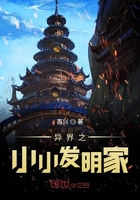Something far down the road caught Michael's eye, some moving line of brown wagons. As they came nearer he saw that they were the motor-ambulances of the Red Cross, moving slowly along the ruts and holes which the traffic had worn, so that the occupants should suffer as little jolting as was possible. They carried no doubt the wounded who had been taken from the trenches last night, and now, after calling for them at the first dressing station in the rear of the lines, were removing them to hospital. As they passed the four men sitting by the roadside, one of them shouted, "Cheer, oh, mates!" and then they fell to whistling "Tipperary" again.
Then, oh, blessed moment! the fat Frenchwoman looked out of the kitchen window just above his head.
"Diner, m'sieu," she said, and Michael, without another thought of ambulance or aeroplane, scrambled to his feet. Somewhere in the middle distance of his mind he was sorry that this tranquil morning was over, just as below in the darkness of it there ran those streams of yearning and of horror, but all his ordinary work-a-day self was occupied with the immediate prospect of the stewpot. It was some sort of a ragout, he knew, and he lusted for it. Red wine of the country would be there, and cheese and new brown bread. . . .
It surprised him to find how completely his bodily needs and the pleasure of their gratification had possession of him.
They were under orders to go back to the trenches shortly after sunset, and when their meal was over there remained but an hour or two before they had to start. The warmth and glory of the day was already gone, and streamers of cloud were beginning to form over the open sky. All afternoon these thickened till a dull layer of grey had thickly overspread the heavens and below that arch of vapour that cut off the sun the wind was blowing chilly. With that change in the weather, Michael's mood changed also, and the horror of the return to the trenches began to come to the surface. He was not as yet aware of any physical fear of death or of wound, rather, the feeling was one of some mental and spiritual shrinking from the whole of this vast business of murder, where hundreds and thousands of men along the battle front that stretched half-way across Europe, were employed, day and night, without having any quarrel with each other, in the unsleeping vigilant work of killing. Most of them in all probability, were quite decent fellows, like those four who had whistled "Tipperary" together, and yet they were spending months of young, sweet life up to the knees in water, in foul and ill-smelling trenches in order to kill others whom they had never seen except as specks on the sights of their rifles.
Somewhere behind that gruesome business, as he knew, there stood the Cause, calm and serene, like some great statue, which made this insensate murdering necessary; but just for an hour to-day, as he waited till they had to be on the move again, he found himself unable to make real to his own mind the existence of that cause, and could not see beyond the bloody and hideous things that resulted from it.
Then, in this inaction of waiting, an attack of mere physical cowardice seized him, and he found himself imagining the mutilation and torture that perhaps awaited him personally in those deathly ditches. He tried to busy himself with the preparation of the few things that he would take with him, he tried to encourage himself by remembering that in his previous experiences there he had not been conscious of any fear, by telling himself that these were only the unreal anticipations that were always ready to pounce on one even before such mildly alarming affairs as a visit to the dentist;but in spite of his efforts, he found his hands growing clammy and cold at the thoughts which beset his brain. What if there happened to him what had happened to another junior officer who was close to him at the moment, when a fragment of shell turned him from a big gay boy into a writhing bundle at the bottom of the trench! He had lived for a couple of hours like that, moaning and crying out, "For God's sake kill me!" What if, more mercifully, he was killed outright, so that he would lie there in peace till next night they removed his body, or perhaps had to bury him in the trench itself, with a dozen handfuls of soil cast over him! At that he suddenly realised how passionately he wanted to live, to escape from this infernal butchery, to be safe again, gloriously or ingloriously, it mattered not which, to be with Sylvia once more. He told himself that he had been an utter fool ever to re-enter the army again like this. He could certainly have got some appointment as dispatch-carrier or had himself attached to the headquarters staff, or even have shuffled out of it altogether. . . . But, above all, he wanted Sylvia; he wanted to be allowed to lead the ordinary human life, safely and securely, with the girl he loved, and with the musical pursuits that were his passion. He had hated soldiering in times of peace; he found now that he was terrified of it in times of war. He felt physically sick, as with cold hands and trembling knees he stood and waited, lighting cigarettes and throwing them away, in front of the kitchen fire, where the stewpot was already bubbling again for those lucky devils who would return here to-night.
The Major of his company was sitting in the window watching him, though Michael was unaware of it. Suddenly he got up, and came across to the fire, and put his hand on his shoulder.
"Don't mind it, Comber," he said quietly. "We all get a touch of it sometimes. But you'll find it will pass all right. It's the waiting doing nothing that does it."That touched Michael absolutely in the right place.
"Thanks awfully, sir," he said.















